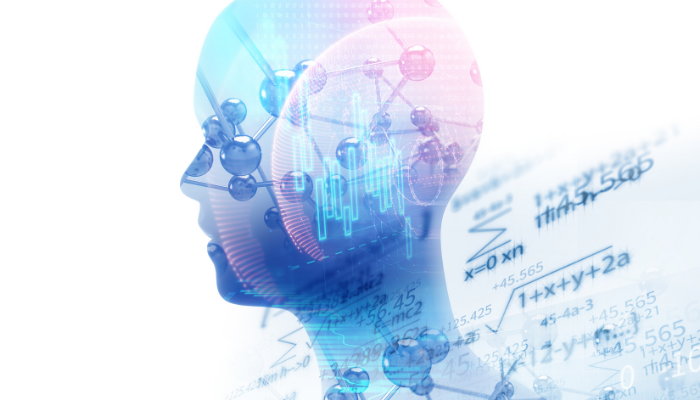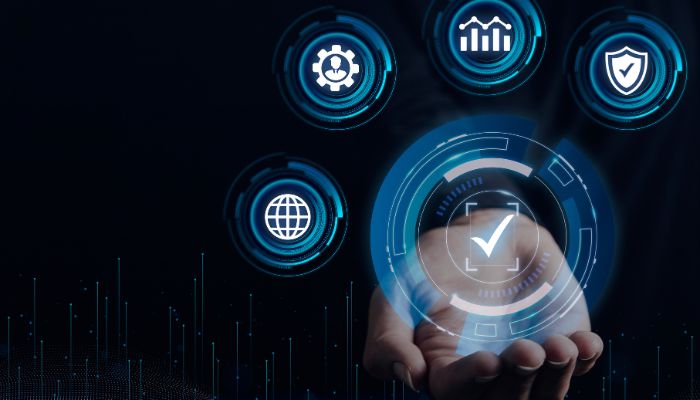With the breakthrough success of AI-based technologies in the business and HR world, recruitment processes are now rapid, time-efficient, and convenient for several companies. However, like every technology and tool, AI has its pros and cons. Although positive outcomes precede the negative ones, the AI bias in HR processes has been a growing concern among HR leaders. AI technologies are progressive and rapid, but they lack the human touch, work on trained algorithms and replicate data fed to the system, thus increasing chances of AI bias in HR.
AI in HR
AI simulates human processes or human behavior through machines to complete tasks that may be time-consuming and complex. Today, AI-based programs are aiding HR employees by rummaging through millions of resumes and candidates to pick the ones that best suit the opportunities. The automation process is completing time-consuming and trivial tasks at a lighting speed and giving HRs more time to focus on the human perspective of the hiring processes.
However, several instances displayed AI bias in HR that made businesses rethink their reliance on AI for fair recruitments. For example, AI scouting more male candidates than female for technical roles or the algorithm shooting down all candidates who had the word “women” written on their resume for hard-skilled tasks were some of the common issues faced by the HR leaders. Also, they realized that the training data fed to the AI was gender bias and the algorithm ended up replicating the data, which ended up increasing AI bias in HR.
You might also be interested to read: Workplace Automation – Boon Or Bane For Employees?
Yes, AI bias in HR exists, but that does not mean it cannot be neutralized. And to put across a bigger picture, the data used for training the AI’s algorithm could be the root cause of AI bias in HR. After all, AI is a machine learning from human behavior. So, here are some interesting concerns about AI and how it can affect the HR system ethically and unethically:
Promote gender neutrality at every step of recruitment: For the AI to scout diverse candidates for the organization, there should be a balance of male and female candidates applying for the open opportunities. This brings us to the job descriptions, especially for technical jobs. Some of them may either appear too masculine or unappealing for the female candidates to apply. The organization must advocate diversity at every step during recruiting for the AI to deliver unbiased results. Gender-neutral job descriptions will appeal to more candidates and decrease the chances of AI bias in HR.
AI may not be 100% ethical and accurate: Machines can make mistakes, so to deem AI’s results 100% accurate and ethical can land the HR department in a soup sooner or later. Although the whole notion about relying on AI is to have quick results with accuracy, AI recruiting will never be 100% free from bias. Also, the data used for training the algorithm may not be thoroughly unbiased, so AI bias in HR is possible, which is why the experts recommend scrutiny before acting on results.
Advocate diversity to boost AI unbiased results: An organization’s history with diversity and gender parity can affect how AI selects the candidates. If the AI’s algorithm is trained with data that has scouted male candidates for technical or programming jobs, then the AI system will indubitably end up choosing similar candidates in the future too. Hence, organizations must advocate diversity and gender parity amongst their workforce, even though society has conditioned us to believe that only men can do hard-skill jobs and women are great for soft-skill roles. If the organization wants to eliminate AI bias in HR, boosting equality may prove lucrative to a great extent.
Partner with vendors who understand AI bias in HR: A vendor who understands algorithm bias will keep the organization informed if the AI system is creating any. The HR leaders and technical team must discuss these biases with the vendor and also how they can prevent the biases to ensure an unbiased recruiting process. Moreover, experts point out that managing an algorithm is a complex and challenging process; hence HRs must select an AI system tested for accuracy and validation to procure ethical, unbiased, and accurate results.
Training data should be unbiased and competitive: AI behavior and outputs depend upon the data used to train the algorithm. Most AI systems are trained with data that is either outdated, biased, or repetitive, resulting in AI bias in HR. The organization must opt for competitive and unbiased data by opting to look into unconventional traits of the candidate rather than the conventional data such as school, qualifications, experiences, etc. This will decrease AI bias in HR and aid the AI system will deliver impartial and ethical results.
Today, AI-based technologies are successfully aiding several HR agencies and teams by speeding up the recruitment process. However, if the HR leaders neglect to monitor the ethics of the AI system, it would eventually lead to biases creeping in and showing up in results. Therefore, to utilize the lucrative traits of AI, the HR leaders must address these biases and outline agendas that target these biases to produce ethical results. Although it’s dubious to state if AI’s scouting for the best candidates will be 100% accurate and reliable after drafting a framework, not drafting one will unquestionably lead to a lack of gender neutrality and diversity in the workforce.
So, will AI ever produce 100% ethical results like humans when it comes to recruiting candidates? The answer is yes. AI-based technologies in the future will certainly advance to a level where it can make decisions with ethical, logical, and empathetic reasonings. However, until then, the AI system and humans will have to work amicably to make the recruitment process a breeze for the management and the candidates. Also, AI is the future in the business and recruiting world, so the organization and the HR leaders must switch to AI to augment their hiring processes but without creating biases that can hamper the organization’s workforce diversity.
References:
- 3 Ways to Neutralize AI Bias in Recruiting| Visier| Ian Cook| December 4, 2018
- Using AI to Eliminate Bias from Hiring| Harvard Business Review| Frida Polli| October 29, 2019
- The Bias Is Real: 5 Experts on AI Bias in HR and How It Can Be Addressed| HR Technologist| Chiradeep BasuMallick| October 15, 2019
You might also be interested to read:
Related Topics:






